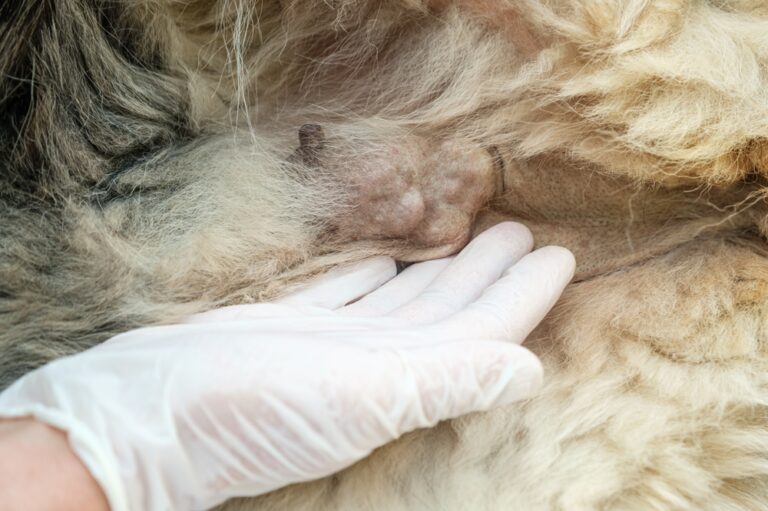A Step-by-Step Guide for Successful Shih Tzu Breeding
Whether you’re a novice breeder or an experienced one looking to enhance your knowledge, this step-by-step guide is your key to success. With the proper techniques and a deep understanding of these adorable companion dogs, you can embark on a rewarding and fulfilling breeding journey.
In this comprehensive guide, we will walk you through the essential aspects of Shih Tzu breeding, from selecting the perfect pair to caring for the mother and her puppies. You will learn the intricacies of genetics, health screening, and responsible breeding practices. We’ll explore the importance of creating a safe and nurturing environment for the mother and her puppies, ensuring their physical and emotional well-being.
With our expert tips and trusted techniques, you’ll gain the confidence to raise healthy, well-adjusted Shih Tzu puppies that can bring joy to their future families. So, let’s dive in and unlock the secrets to becoming a successful Shih Tzu breeder!
Preparing for Shih Tzu Breeding
When breeding Shih Tzus, it’s important to prioritize the well-being and longevity of the breed. This means selecting healthy breeding pairs with no genetic abnormalities or hereditary diseases. By understanding the breed standards and genetic health testing, you can ensure that your breeding program contributes to the overall improvement of the Shih Tzu breed.
Before embarking on the breeding journey, it’s essential to mentally and physically prepare. Breeding Shih Tzus requires dedication, time, and financial resources. Start by evaluating your reasons for breeding and ensuring you have the necessary resources to care for the mother and her puppies properly.
Next, create a breeding plan to select the right breeding pair, schedule veterinary check-ups, and prepare a safe and comfortable whelping area. This plan should also include a contingency plan in case of complications during pregnancy or birth.
It’s important to note that breeding should only be done by responsible individuals who understand the commitment involved. Breeding should never be done solely for financial gain or to produce puppies without regard for their well-being. Responsible breeding ensures the health and welfare of the breed and promotes responsible pet ownership.
Selecting the Right Breeding Pair
The right breeding pair is crucial for producing healthy and well-tempered Shih Tzu puppies. Ideally, males and females should meet the breed standards and be free from genetic or hereditary diseases. This can be determined through health screening tests conducted by a reputable veterinarian.
Consider temperament, conformation, and genetic diversity when choosing a breeding pair. A good understanding of the breed standard will help you evaluate potential breeding dogs and select those that possess the desired traits.
Additionally, it’s essential to consider the compatibility between the pair. The female should be in good health and at the appropriate age for breeding. The male, on the other hand, should have a proven track record of successful matings. It’s also advisable to seek guidance from experienced breeders or mentors who can provide valuable insights and advice during selection.
The Breeding Process
Once you have selected the perfect breeding pair, it’s time to initiate the breeding process. Shih Tzus are known to be generally good breeders, but proper timing and assistance may be required to ensure successful matings.
The female should be in optimal health and at the proper heat cycle stage for breeding. It’s important to monitor her behavior and signs of receptivity closely. If necessary, artificial insemination can be considered, especially if the male is not available or there are difficulties in achieving a natural mating.
During breeding, it’s crucial to ensure a safe and stress-free environment for both males and females. Some breeders prefer to allow natural matings, while others opt for artificial insemination. Whichever method is chosen, it’s crucial to prioritize the well-being of the dogs and seek professional guidance if needed.
Caring for the Pregnant Shih Tzu
Once the female is successfully bred, she enters the gestation period, which lasts approximately 63 days. During this time, it’s essential to provide proper care and nutrition to support the mother’s health and the development of the puppies.
Ensure that the pregnant Shih Tzu receives a balanced diet that meets her nutritional needs. Consult a veterinarian to determine the appropriate diet and supplements for a healthy pregnancy. Regular veterinary check-ups are crucial to monitor the mother’s health and address potential complications.
Providing a comfortable and stress-free environment for the pregnant Shih Tzu is essential. Create a designated area where she can rest and feel safe. Avoid unnecessary stressors and provide ample opportunities for exercise and mental stimulation.
Whelping and Raising Shih Tzu Puppies
As the due date approaches, preparing for the whelping process is important. Set up a clean and quiet whelping area where the mother can give birth and nurse her puppies comfortably. Ensure the area is warm, free from drafts, and easily accessible for the mother and the breeder.
During the whelping process, closely monitor the mother’s progress and be prepared to assist if necessary. Have essential supplies, such as clean towels, gloves, and a whelping box. Acting calmly and confidently minimizes stress for the mother and the puppies is necessary.
Once the puppies are born, provide them with proper care and early socialization. Monitor their health, ensure they receive adequate nutrition, and begin the process of early training and socialization. Create a stimulating environment to promote their physical and mental development.

Health Considerations in Shih Tzu Breeding
Breeding healthy Shih Tzus is of utmost importance. Regular health screenings and genetic testing should be conducted to identify potential health issues and prevent the transmission of hereditary diseases. Consult with a veterinarian and stay informed about the latest advancements in veterinary medicine.
Additionally, stay up-to-date with vaccinations, parasite prevention, and general healthcare practices for breeding dogs and their puppies. Regular veterinary check-ups and open communication with your veterinarian are essential for maintaining the health and well-being of your breeding program.
Marketing and Selling Shih Tzu Puppies
Once the puppies find their forever homes, it’s time to market and sell them responsibly. Take high-quality photographs and create compelling descriptions highlighting each puppy’s unique qualities. Utilize online platforms and social media to reach potential buyers.
Screen potential buyers carefully and ensure they are prepared to provide a loving and responsible home for a Shih Tzu puppy. Provide them with information about the breed, the puppy’s health history, and necessary care instructions. Stay in touch with the new owners and offer support and guidance as needed.
Conclusion and final tips for success
Breeding Shih Tzus can be rewarding and fulfilling but requires dedication, knowledge, and responsible practices. By understanding the breed, selecting the right breeding pair, providing proper care, and prioritizing health considerations, you can contribute to the betterment of the Shih Tzu breed.
Remember always to prioritize the well-being and welfare of the dogs throughout the breeding process. Seek guidance from experienced breeders, stay informed about best practices, and continuously educate yourself on the latest canine health and genetics advancements.







